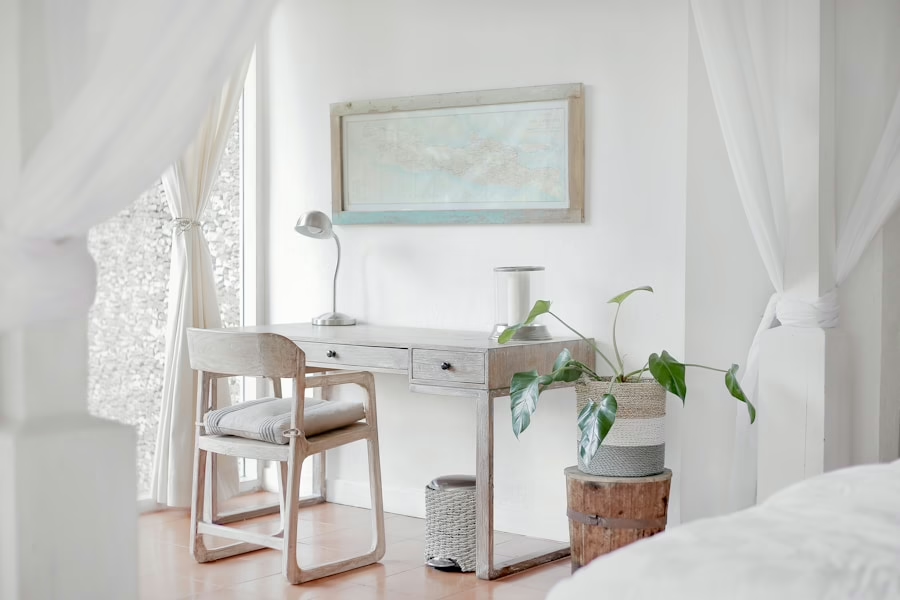In today’s fast-paced world, the pursuit of a simpler life has become increasingly appealing. A stress-free lifestyle is not merely about reducing clutter or managing time effectively; it encompasses a holistic approach to living that prioritizes mental well-being and personal fulfillment. By adopting practical strategies, individuals can create an environment that fosters tranquility and joy.
This journey often begins with self-reflection, identifying what truly matters, and letting go of the excess that weighs us down. To embark on this path, one must first recognize the sources of stress in their life. This could range from physical clutter in the home to overwhelming commitments in one’s schedule.
By addressing these stressors head-on, individuals can take actionable steps toward simplification. Whether it’s through decluttering physical spaces or reassessing social obligations, the goal is to create a life that aligns with personal values and aspirations.
Key Takeaways
- Decluttering your space can lead to a more minimalist and stress-free home environment.
- Prioritizing and organizing your schedule can help you manage your time more effectively and reduce stress.
- Practicing mindfulness and meditation can help you find inner peace and reduce anxiety.
- Budgeting and saving strategies can simplify your finances and reduce financial stress.
- Simplifying meal planning and preparation can lead to healthier eating habits and reduce stress around food.
Declutter Your Space: Tips for a Minimalist Home
Decluttering is a fundamental step toward achieving a minimalist home, which can significantly enhance one’s quality of life. A cluttered environment often leads to a cluttered mind, making it difficult to focus and relax. To begin the decluttering process, one can adopt the “one in, one out” rule, which encourages individuals to remove an item from their home for every new item they bring in.
This practice not only helps maintain a tidy space but also fosters mindful consumption. Another effective strategy is to tackle decluttering room by room. Start with areas that are less emotionally charged, such as a bathroom or a closet, before moving on to more personal spaces like the bedroom or living room.
By breaking the task into manageable sections, it becomes less overwhelming and more achievable. Additionally, consider donating items that are no longer needed; this not only clears space but also benefits others in the community.
Time Management: How to Prioritize and Organize Your Schedule
Effective time management is crucial for simplifying life and reducing stress. One of the most effective methods is to prioritize tasks based on urgency and importance. The Eisenhower Matrix is a popular tool that categorizes tasks into four quadrants: urgent and important, important but not urgent, urgent but not important, and neither urgent nor important.
By focusing on what truly matters, individuals can allocate their time more wisely and avoid the trap of busywork. In addition to prioritization, organizing one’s schedule can lead to greater efficiency. Utilizing digital calendars or planners can help visualize commitments and deadlines.
Setting aside specific blocks of time for focused work, breaks, and personal activities ensures a balanced approach to daily life. Regularly reviewing and adjusting one’s schedule allows for flexibility and adaptability, which are essential in maintaining a stress-free lifestyle.
Mindfulness and Meditation: Techniques for Inner Peace
Mindfulness and meditation are powerful practices that can significantly contribute to inner peace and emotional well-being. Mindfulness involves being fully present in the moment, acknowledging thoughts and feelings without judgment. Simple techniques such as mindful breathing or body scans can be easily integrated into daily routines, providing moments of calm amidst the chaos of life.
Meditation, on the other hand, offers a structured approach to cultivating mindfulness. There are various forms of meditation, including guided sessions, transcendental meditation, and loving-kindness meditation. Each technique serves to quiet the mind and foster a deeper connection with oneself.
Regular practice can lead to reduced anxiety, improved focus, and an overall sense of tranquility.
Simplifying Your Finances: Budgeting and Saving Strategies
Financial stress is a common source of anxiety for many individuals. Simplifying finances through effective budgeting and saving strategies can alleviate this burden. Creating a budget involves tracking income and expenses to identify spending patterns.
By categorizing expenses into needs versus wants, individuals can make informed decisions about where to cut back. Additionally, establishing an emergency fund is a crucial step in financial simplification. This fund acts as a safety net for unexpected expenses, providing peace of mind and reducing reliance on credit.
Automating savings contributions can also simplify the process; by setting up automatic transfers to savings accounts, individuals can ensure they are consistently saving without having to think about it.
Healthy Eating Habits: Simplifying Meal Planning and Preparation
Adopting healthy eating habits is essential for overall well-being, but meal planning can often feel overwhelming. Simplifying this process can lead to better nutrition without added stress. One effective strategy is batch cooking—preparing large quantities of meals in advance allows for quick access to healthy options throughout the week.
This not only saves time but also reduces the temptation to opt for unhealthy convenience foods. Another approach is to create a rotating meal plan that includes a variety of simple recipes. By focusing on a few staple ingredients that can be used in multiple dishes, individuals can streamline grocery shopping and reduce food waste.
Emphasizing whole foods such as fruits, vegetables, whole grains, and lean proteins makes it easier to maintain a balanced diet while simplifying meal preparation.
Digital Detox: Unplugging and Finding Balance in a Tech-Driven World
In an era dominated by technology, the need for a digital detox has become increasingly important. Constant connectivity can lead to information overload and increased stress levels. Taking intentional breaks from screens allows individuals to reconnect with themselves and their surroundings.
Setting specific times during the day to unplug—such as during meals or before bedtime—can foster healthier habits and improve overall well-being. Engaging in offline activities such as reading, exercising, or spending time in nature can provide a refreshing contrast to digital consumption. Additionally, establishing boundaries around technology use—such as limiting social media engagement—can help create a more balanced lifestyle.
By consciously choosing when and how to engage with technology, individuals can reclaim their time and mental space.
Simplifying Relationships: Setting Boundaries and Prioritizing Self-Care
Healthy relationships are vital for emotional well-being; however, they can also become sources of stress if not managed properly. Simplifying relationships involves setting clear boundaries that protect personal time and energy. Communicating openly about needs and expectations fosters mutual understanding and respect among friends and family.
Prioritizing self-care is equally important in maintaining healthy relationships. Taking time for oneself allows individuals to recharge and approach interactions with a positive mindset. Engaging in activities that bring joy—whether it’s pursuing hobbies or spending time alone—ensures that one remains balanced and fulfilled. Ultimately, simplifying relationships is about nurturing connections that uplift while letting go of those that drain energy or cause unnecessary stress.



